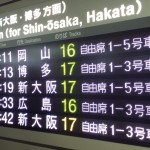When planning your international business strategy, you study carefully each and every area of your business in detail to avoid any failures. But make mistakes in translation of advertising slogans and you will make your international business fail. We all know is not easy to keep a coherent brand message in different cultures. Mistakes in translation of advertising slogans, instructions, etc populate the whole of the Internet. Few brands have truly achieved a coherent global image.
Globalizing a business is a challenging task, and globalizing its image is far more dificult than we may first think. Even brand names may have to be changed. Below are a few examples which show how mistakes in the translation of advertising slogans lead in the past to the failure of an advertising campaign – and the significance of professional human translation services where the message is critical.
Head & Shoulders
This well-known brand had to change its name in Spain and other markets because its name just could not be pronounced. It affected brand image. It is known in most Spanish-speaking countries (and others) as H&S.
You see? Launching a global product may not be as simple as it sounds. Being neglectful of even the apparently most insignificant areas of your business affairs can lead to considerable losses in design, (re)printing, brand image… Mistakes in translation of advertising slogans can play a key role in the failure of your promotional campaign in a particular country or language-homogenous region. Acquiring professional translation services and relying on human translation can ensure that you avoid making any such mistakes in translation and are provided with quality translations for your businesses.
Pepsi
Another multinational that saw the failure of its advertising campaign in China was Pepsi. It was the 60’s.
Pepsi planned to grow its business to China and launched its promotional campaign, which had the original slogan worded as ‘Come alive with Pepsi’. The famous American soda drink was one of the first foreign companies to market its products in China.
Perhaps unaware of what sugary soda can do to thirsty people on a hot day, Pepsi’s advertising slogan was improperly translated as ‘Pepsi brings your ancestors back from dead’. Not quite the effect that Pepsi was looking for. The entire promotional campaign had to be called off and posters with that message are expensive collector’s items nowadays.
KFC
Years later, when the famous fast food chain introduced its promotional campaign in China, it suffered a well-known setback. And the setback was not small. An apparently trivial mistake in the translation caused considerable monetary losses.
The world-famous slogan of KFC, ‘Finger-lickin’ good’ was inadequately translated in Mandarin Chinese as ‘Eat your fingers off’, probably the work of un unchecked machine translation output or an unqualified translator at work. The unappealing translation caused many Chinese consumers uneasy towards the kind of food that KFC served.
HSBC Bank
HSBC is probably one of the few banking multinationals that faced extensive monetary loss due to translation mistakes in its advertising campaign. In 1999, HSBC extended its promotional campaign, specifically in the United States, with the slogan ‘Assume nothing’ to a number of countries overseas. However, in various countries the slogan was translated to be understood as ‘Do nothing’.
The translated slogan was considered to make no sense by many consumers. The bank had to spend a sum of $10 million in the redesign of its promotional campaign. The original slogan of ‘Assume nothing’ was changed to ‘The world’s private bank’.
Ford
The American automotive giant identified a large scale consumer base for their product in Belgium. Ford was enthusiastic about expanding its business in this bilingual European country where French and Dutch are spoken and it launched an extensive advertising campaign with a slogan the marketing team at Ford thought meant ‘Every car has a high-quality body’.
Unfortunately, the slogan was translated to actually mean, ‘Every car has a high-quality corpse’.
Machine Translation and Translation Tools
Many companies make a terrible mistake relying on machine translation to automatically translate their content without human supervision. Machine Translation is here to stay and can play a part in your international strategy. For example, it can help you monitor what different markets are saying about your product or service. Properly managed, machine translation will help you publish more content, and gain more online presence. But you will need human post-editing services to avoid mistakes in translation of advertising slogans, for example.
Human translation services rely on the adequate use of computer-assisted translation (CAT) tools and translation memories to aid efficient and quality translation. Hiring professional translation services for business purposes has a significant importance and can play a key role in the success of an international promotional campaign. Nowadays, human translation can also be aided by the use of computer-assisted translation tool and translation memory. Computer-assisted translation tool and translation memory can be effective in organization and time efficiency of the translation process.
If the content to be published is key, make sure to add a human proof-reading element in your strategy – a professional translation company will provide guidance on it. Contact PangeaMT, our machine translation division, if you would like to find out more about how to add professional machine translation to your international efforts and see your business grow.



